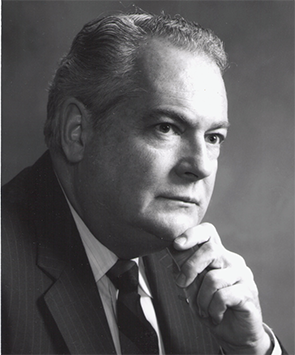
Paul H. Ward MD
UCLA
Paul Ward passed away on April 9 of this year. He was one of the true giants (an overused term, in my opinion, but Paul really was a giant) of our specialty. There have been and will be many more formal obituaries and tributes to Paul and his many professional accomplishments. I’d like to share with the ENTtoday readers a more personal tribute to Paul based on my interactions with him.
Explore This Issue
October 2015I matched in the University of California, Los Angeles (UCLA) general surgery program in 1973 with the intent of becoming a surgeon in the then-budding field of liver transplantation. I had done research in this area throughout medical school and was even lucky enough to rotate for three months at the University of Colorado, where Tom Starzl, MD, PhD, was doing some of his pioneering work, so I knew where my professional life was heading. I enjoyed my time in general surgery at UCLA, but then, as a PGY-2, I did a rotation on Head and Neck, the title for the UCLA otolaryngology section. Well, I had thought I was happy in general surgery, but after rotating on the head and neck service with Paul, Tom Calcaterra, MD, Nando Canalis, MD, and the other wonderful faculty members of that time, I decided to change my career plans. Paul had been chief of the division for only a few years, but he, along with his great faculty, had already developed a research and educational program second to none. Their enthusiasm and vigor for their young program was palpable and very attractive to me.
Although he loved research and assembled a great team in that realm, my main contact with Paul was in education. Paul was a very tough taskmaster who expected nothing less from the residents than the time and effort he put into his practice, which was a daunting standard. Arriving in his office even before the residents made pre-surgical rounds, he stayed until the last bit of work was completed, which ensured the residents at least attempted to work as hard as he did.
Paul’s Wednesday conferences were some of the most educationally outstanding sessions I’ve encountered. Paul combined tough questioning with great humor in working residents through cases using the Socratic teaching method at its best. Making rounds on patients with Paul was equally enlightening.
Paul was very demanding in the OR. The chief resident had to have personally reviewed all of the imaging studies, histopathology slides, lab work, and any other information prior to entering the OR. Once the specimen was excised, Paul would take the operating resident to pathology to orient the specimen or look over the frozen sections. He was a very fast surgeon and would leave the residents to close the wound. Occasionally, the residents might slow the pace a bit at this point, but every now and then, a familiar voice would come over the OR 6 PA system from the observation area, “Don’t let the euphoria of closure slow you down.” And the pace would move back into “Paul mode.” Paul was famous for his sayings, some of which are in the sidebar.